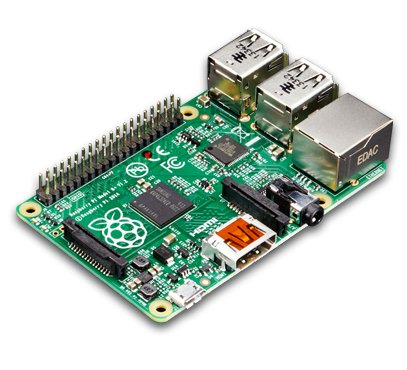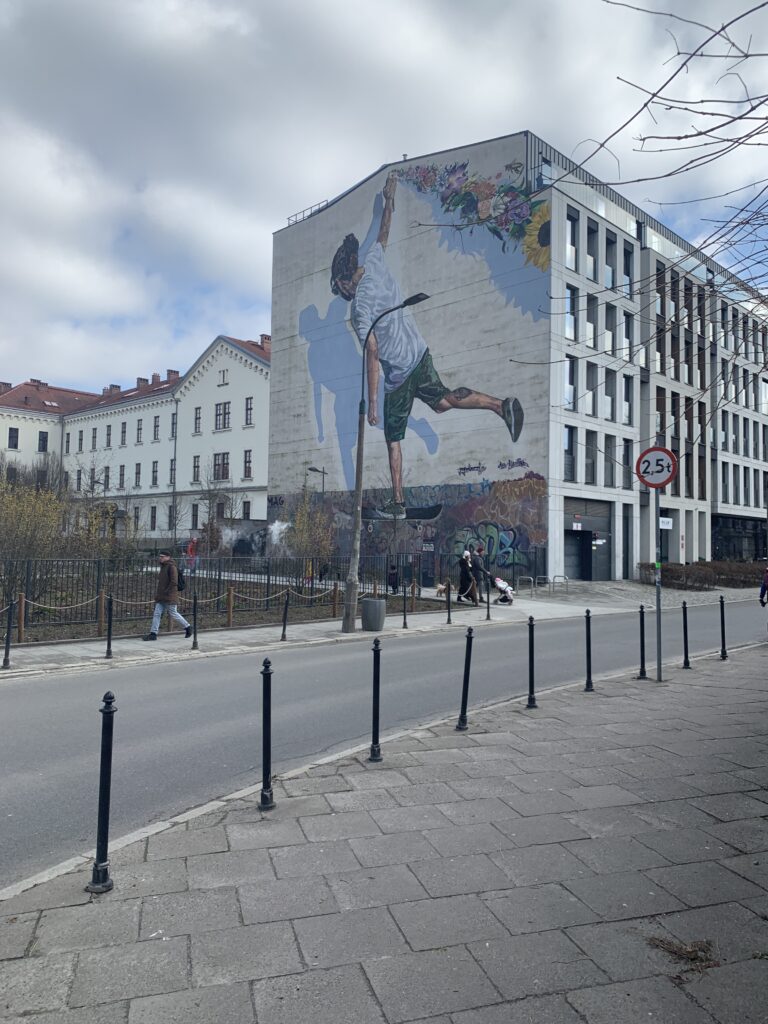My Trip to Poland
My residence, Goodenough College, is an extremely funky place. I’ll write a full article on it at a later date, but for now I’m going to talk about the Dean’s Seminars.
Goodenough College has had many alumni graduate to influential roles of the years, and its Dean, Alan McCormack, has an endless stream of friends and contacts. To further the education of its members, Goodenough puts on seminars across Europe. These seminars are intensive workshops on various academic subjects. I’ve applied for anything remotely relevant to my degree, and I was invited to join in on the Dean’s Seminar on the digital commons to Kraków, Poland, over March 13th to 16th.
Kraków is a lovely city in Poland with a well-preserved historic centre and a strong computing science university, AGH University of Kraków, who hosted us for the weekend. I made a group chat of those going on the trip, and many of us arranged to be on the same flights. Those who could make it left for Kraków a day early, staying in a quaint hostel that evening and leaving early morning to take a bus to the concentration camp Auschwitz. It poured on us the entire time, and I got soaked. The miserable grey skies were very fitting. I am glad I was able to visit it and pay my respects, but it was exactly as horrible as you’d imagine. Definitely once in a lifetime was enough for me.
After that, we met up with the sponsor of the trip, Sir Andy Hopper, who quickly got to work attempting to explain his vision for the digital commons, as well as briefing us on a concept for the national digital service and a research group called newlabs. It was pretty disjoint. I had no clear takeaways beyond a few pages of notes.
After the intro and meet and greet we checked into our hotel. The hotel, Hotel Polonez, was clean and very nice, but there was something slightly off about it, as if an AI was told to design a fancy hotel. There was no main entrance to the building, only a side entrance requiring us to buzz in and walk up several flights of stairs to the reception desk (or take a tiny elevator).
We had dinner in the hotel and ate an incredible meal, which included dessert. There was dessert after every meal on the trip, breakfasts, lunches, and dinners, and most were several courses. Andy fed us well, absolutely no complaints there.

Day two we were back at it, going through case studies on where the digital commons works well. Prof. Rob Mullins of Cambridge joined us. He had an instrumental role in the development of the Raspberry Pi, and went through its story. The Raspberry Pi is a cheap, open source, minimalist computer that’s easy to modify. The initial idea was formed when Rob noticed that fewer and fewer computer science applicants had actually tinkered with hardware themselves. He wanted to change that, and he definitely succeeded. I’ll go through how the Raspberry Pi is a digital commons below, as well as Rob’s other case studies he mentioned.
After an excellent lunch at the university, we were back at it. There was an optional talk by Andy on his hobby of flying around the globe in a tiny little airplane, which I went too. Key take away: flying solo for trips sometimes exceeding a dozen hours without a stop looks extremely uncomfortable and I do not want that type of hobby (not that I could dream of affording it).
Next we had a talk by Professor Alison Smith of Cambridge on biotechnology, algae, and its relationship to the digital commons. It was well outside of my field, and I had stayed up late chatting to my roommate (I make friends everywhere, what can I say?) so I had a hard time giving this section the attention it deserved.
This was followed up by dinner at Europejska restaurant, which was fantastic, and an evening wander around the city centre. Kraków at night was a bit strange. I was wandering with a group of guys, and we were obviously tourists and a good mark. Several women came up to us to invite us to various parties or clubs, including a memorable offer of “Jacuzzis and bitches”. As tempting as a hot tub is, we decided to turn down the offer.
Not that I’m the type to visit them anyhow, but the internet says Kraków’s “gentlemen’s” clubs are often a scam, where bouncers force you to pay substantial fees before you are allowed to leave. Having women come up and try to entice me either into a) a scam, or b) a legitimate strip club was a bit of a strange contrast to Poland’s rapid economic growth, clean streets, high quality of life, and the stereotypes I held of it as a Catholic socially conservative country.

After a second hotel breakfast the following day’s talk was on Poland’s digital infrastructure growth by Professor Kris Zielinski of AGH university. He talked about Poland’s rapid digitization, university system, human capital development, and all that sort of thing, with Andy interjecting on occasion to add thoughts about the digital commons.
We ended the day shortly after noon, with each member sharing thoughts about the digital commons in context of their disciplinary knowledge. Andy did not let the Dean go without speaking, so Alan gave a hilarious speech on money as the root of all evil and poked fun at the business kids in the room (in addition to everything else he does, Alan is an Anglican Priest).
Kris gave a tour of AGH’s datacentres for those interested (which included me of course) and then we were finished. I spent the rest of the day with some fellow goodenough members on a ChatGPT-designed walking tour of Kraków. It was good fun.
We walked to the Wawel castle where we stopped at a Café. I ordered a hot chocolate, that I think was literally melted chocolate in a cup. It was incredibly thick and rich, and I could not finish it.
We split a ride-share to the airport and stopped at an “American” restaurant for dinner. It had a little robot to deliver food with a cowboy hat, and actually had pretty tasty burgers, though definitely nothing like the ones I have at home. Can’t beat moms beef patties that she grinds and forms herself, that’s for sure. The flight and train back to Goodenough left roughly on time and was uneventful.

The Digital Commons
What are the digital commons?
First, the Commons. The Commons are cultural and natural resources accessible to all members of society, from water, air, nature, to public space and more. They can be publicly held, like a park, or privately held such as a shopping mall.
The digital commons then are information, data, technical blueprints, technology, and similar items accessible to all. They don’t have to be publicly owned, nor free, just generally accessible, and many items straddle the boundary between commons and commodity.
Examples
Stuff on the internet
The most general example of the digital commons is Wikipedia. To add some details to everyone’s favourite encyclopedia,
“Wikipedia[c] is a free-content online encyclopedia written and maintained by a community of volunteers”, now with over 6 million articles in its English edition and over 300k active editors. If you need to learn anything, Wikipedia is the place to start. Editors do deep research and produce well cited overviews of any topic just because they are passionate about it (and having met one personally, they typically become extremely informed in the process). I’ve certainly used and donated to Wikipedia many times, and it’s a true workhorse of the modern internet and the digital commons.
As a parallel, Digital commons need not be non-profits. Reddit also accumulates vast amounts of knowledge (and pictures of cute animals) and has volunteer moderators, however it’s run by a for-profit corporation.
Speaking of workhorses, take search engines! A search engine (I strongly recommend DuckDuckGo over Google) is the way we access all online content, easily accessible for anyone with an internet enabled device. Without search engines it would be much harder to access the internet and the modern economy would pretty much fall apart if they disappeared one day.
Even the internet can be thought of as the digital commons, with most sites and social media being completely free to use and access.
Open Source Software
Much software today either is, or consists of, open source projects. This includes the operating system Linux (an alternative to Windows or MacOS), the programming languages Python and R (the two I use most frequently) and much more.
Open Access Journals, Research, and Datasets
Most governments give public access to vast quantities of data online, to allow residents, businesses, journalists, and researchers the ability to understand how countries are doing and behaving. Statistics Canada is my favourite, but I might be biased here. There are also Open Access academic journals where research is made available to all, however much of academic research is still stuck in pay-to-access journals only available from a university library (or via a substantial fee). Once I leave university I will miss having access to all possible academic knowledge and be stuck on the Open Access subset.
Cell Cultures
Beyond databases of genomes and biological data, biology also has a unique contribution to the commons in the form of mail order cell cultures, algae, and other small biological orders. Should you need cells to test on, or accidentally kill one of the cells you have, carefully preserved and backup cell lines can be sent over quite quickly. Fischer Scientific currently lists 1545 different cell culture products. Much of biotechnology is dependent on this cornerstone part of the digital commons.
Open source hardware
There are two pieces of open source hardware highlighted in this talk. The first was the Raspberry Pi, designed by some Cambridge professors (including Rob Mullins) when they realized that less and less of their incoming applicants had played with the insides of a computer before.
The second was the lowRISC (Reduced Instruction Set Computer), which had an open root of trust chip for security. Effectively, academics previously couldn’t do verification or research on these security chips because it was too expensive to reproduce, which lowRISC got around. As everyone benefits from better security, Google gave lowRISC substantial funding. This is one of the rare cases where physical digital commons got off the ground despite the substantial capital overhead.
Benefits of the digital commons
The example above is pretty self-explanatory for how we benefit from the digital commons. Wikipedia, free to read powered by volunteer editors, stands legions above all other encyclopedias. Beyond just “it’s nice to have access to high quality free stuff”, we can apply some economics models to truly understand the benefits to keeping things in the commons.
Many modern firms have extremely high Fixed Costs, consisting of capital that is extremely expensive to develop. Take NVIDIA, a firm that develops the high-end computer chips required by most modern technology. Its moat consists of a 13-billion-dollar R&D budget. It’s non-trivial to compete with such a firm due to that massive initial investment.
A high barrier to entry like this via high fixed costs can reduce the competitiveness of a market, increasing the price for goods. Should more of the design be available in the commons, then the initial capital expenditure required to set up a company would decrease. This would increase competition and lower the price of goods.
Secondly, an increase in the digital commons would allow for a better share of knowledge between academia and industry, spurring innovation. In the tech sector, academic research often lags industry. Particularly apparent in Large Language Models such as ChatGPT, academia has a hard time researching how particular technologies work as the investment required to create them is phenomenal. This means both academic research is less cutting edge and less beneficial to industry, and university graduates are not trained on cutting edge technology and need more training by firms upon hire. Just like how open source programming languages allow for university graduates to fall into software jobs with less training, expanding the commons will increase the skills of those coming out of university.
Beyond that, a stronger digital commons also boosts knowledge spillovers—that is, the transfer of ideas and skills between companies, universities, and individuals. Open source programming languages are a great example. These tools, alongside shared code and Q&A on platforms like Stack Overflow, create a communal pool of knowledge that anyone can tap into. Developers, researchers, and hobbyists all contribute, and when employees trained on these tools switch jobs, they bring that know-how with them. The more widely used and shared a tool is across different settings, the more this kind of knowledge cross-pollination happens.
Why are the commons not commonplace?
Given the massive potential benefits of increasing the scale and scope of the digital commons, why don’t firms contribute?
Well here is where the tragedy of the commons comes in (though not the typical one). For any given firm to contribute to the digital commons, there specific competitive advantage would be destroyed in exchange for all firms being slightly better off. This is obviously against the interests of that specific firm. This creates a strong disincentive to any individual to contribute, as the benefits are felt by all in a faster innovation rate
A plan to build a better commons
Sir Andy Hopper wants to build better digital commons infrastructure to increase the amount of things in the digital commons, and to produce resilience in case the United States turns off the internet taps, as we’ve seen with them temporarily shutting down various academic databases last February.
He approached the government with this idea and has one minister who supports these concepts, but generally speaking the UK government has bigger priorities, so Hopper is trying to go private.
He explained it extremely poorly and I don’t quite understand how the program will work, but the tldr is as follows:
- Establish a public benefits corporation (legal structure adjacent to a non-profit).
- Back this corporation with Venture Capital (VC) funds.
- VC invests in companies on the condition they produce digital commons type infrastructure that is held by the public benefits corporation.
- These companies produce a substantial stock of digital commons IP, capital, and data which is held by the public benefits corporation.
- The digital commons holdings of the public benefits corporations expand beyond the reach of the VC fund through limiting access unless firms agree to contribute. There is so much value inside these digital commons holdings that firms are incentivized to use the program.
- Small players and academics get access for free (outside of general agreements to contribute)
- Medium and larger players must also pay a fee which contributes to the upkeep of the databases, websites, etc.
- Society profits, there’s a revitalization of UK and European innovation, big monopolies have less power, etc. etc.
Hopper expects he will need £20 million to go forward with this project and has hired a few employees so far. He is already in the step of recruiting VC players, and hopefully makes a proper website that I can link to soon.
Conclusion
I was skeptical of the digital commons during the seminar and given how poorly it was presented it took me most of the weekend to even wrap my head around how it was different from open source. Now that I’ve had some time to think about it I’d argue it’s probably feasible, all you need is one or two VC-backed companies to blow up big enough to contribute and then it might be able to self-sustain without government backing.
VC payout is a particularly left skewed distribution, so getting a success story takes a lot of luck. I wish Sir Andy Hopper the best in this, it’d be magnificent for economic development.

Leave a Reply to Sonia Cancel reply